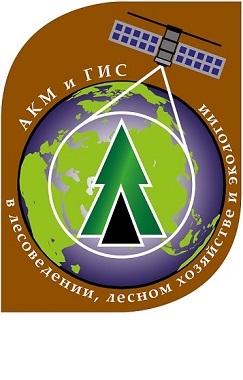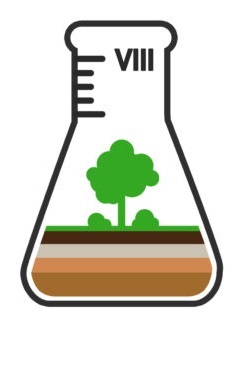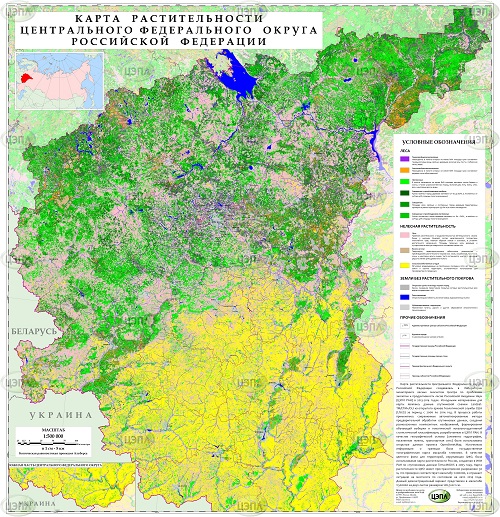
Development of methods and technology for integrated usage of Earth observation data to improve national monitoring system of carbon budget in Russian forests under global climate change
Head: Bartalev S.A.
Date: 2019-2023 гг.
Abstract: Current research shows the link between global climate changes observed and the increasing concentration of atmospheric greenhouse gases (CO2, CO, CH4, etc.) mostly caused by human activity. UN Framework Convention on Climate Change set a strategic goal to stabilize atmospheric greenhouse gases concentration at the level preventing dangerous impact on Earth’s climatic system.
Forests have a unique ability to bind large quantities of atmospheric carbon for long periods of time. Carbon is stored in trees, understory, plant debris and soil. Forest growth and planting facilitate absorption of carbon which compensates natural and anthropogenic emissions. Conversely, forest damage and deforestation increase carbon dioxide and other greenhouse gases emissions.
Russian forests constitute over 20% of world’s forest cover and play vital role in the Planet’s carbon balance. At the same time current quantitative estimates of Russian forests’ carbon budget display high variability and uncertainty. Substantial reason for this uncertainty is that data on forest characteristics necessary for accurate carbon budget assessment is not sufficiently reliable and up-to-date. Official data on Russian forests quickly becomes outdated and current monitoring system cannot appropriately update the information about their dynamics. Traditional methodologies for forest carbon budget assessment do not account for object of analysis being a fuzzy system and therefore results’ uncertainty can’t be fully estimated. In light of 2015 Paris agreement, aimed at implementing the objectives of the UN Framework Convention on Climate Change, obtaining more objective, comprehensive and accurate estimates of Russian forests’ carbon budget became of great scientific and practical importance.
Information necessary for carbon budget estimation includes data on various forested and unforested land cover types (burnt areas, dead trees, felling sites, natural sparse forest, swamps, etc.), forest characteristics (growing stock volume, species composition, age, productivity) and ecological parameters (Net Primary Production (NPP), heterotrophic respiration, etc.). Data on natural (fires, diseases and pests, windthrow, draughts, etc.) and anthropogenic (felling, pollution, etc.) destructive factors causing deforestation, as well as information on subsequent reforestation processes, are also vital.
Current methods for satellite remote sensing of forests can provide significant part of missing information about forest cover necessary for a country-wide carbon budget estimation. However, the most expedient approach should integrate methods for satellite remote sensing of forests, field measurements of their characteristics and mathematical models of their structure and dynamics.
Existing approaches to satellite mapping and monitoring of vegetation provide regularly updated country-wide information on the distribution of various land cover types and required forest characteristics. Multi-year time series of this data since the beginning of the century can be used to model the dynamics of forest cover and biophysical characteristics of forest ecosystems. Satellite data-based information on forest fires’ impact includes burnt areas over various land cover types as well as fire intensity and forest damage allowing for a reliable characterization of fire-related carbon emissions. Furthermore, developed methods for processing and analysis of multi-year satellite data time series enable detection of forest cover changes caused by various destructive factors that can be accounted for to substantially improve the accuracy of carbon budget estimation.
Proposed project includes the development of a new systematic methodology for forest carbon budget assessment using a multisensor Earth observation approach; integration of ground based and remote sensing data to improve existing and create new models; using the developed methodology to produce new dynamically updated GIS databases of Russian forests’ characteristics; development of an informational system and technology for the continuous monitoring of Russian forests’ carbon budget. Treating carbon budget as a fuzzy system will allow obtaining improved data on current state and dynamics of Russian forests with a substantially lower uncertainty level.
This project will facilitate the collaboration of various leading groups of Russian scientists working in the field of remote sensing of Earth and terrestrial ecosystems’ biogeochemical cycles research, creating a unique opportunity to obtain fundamentally new verified and consistent data on Russian forests’ carbon budget based on objective, comprehensive and precise estimates.










